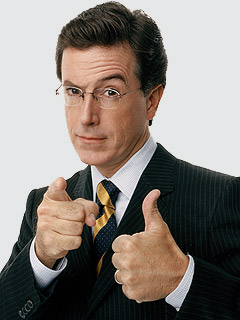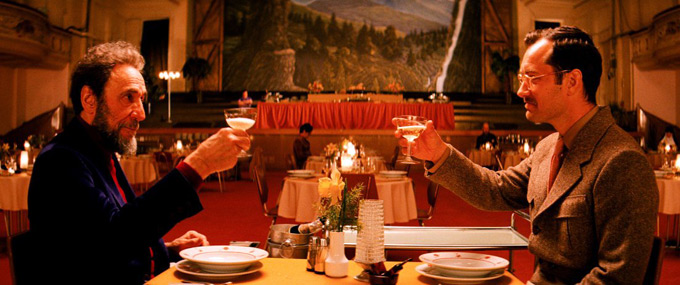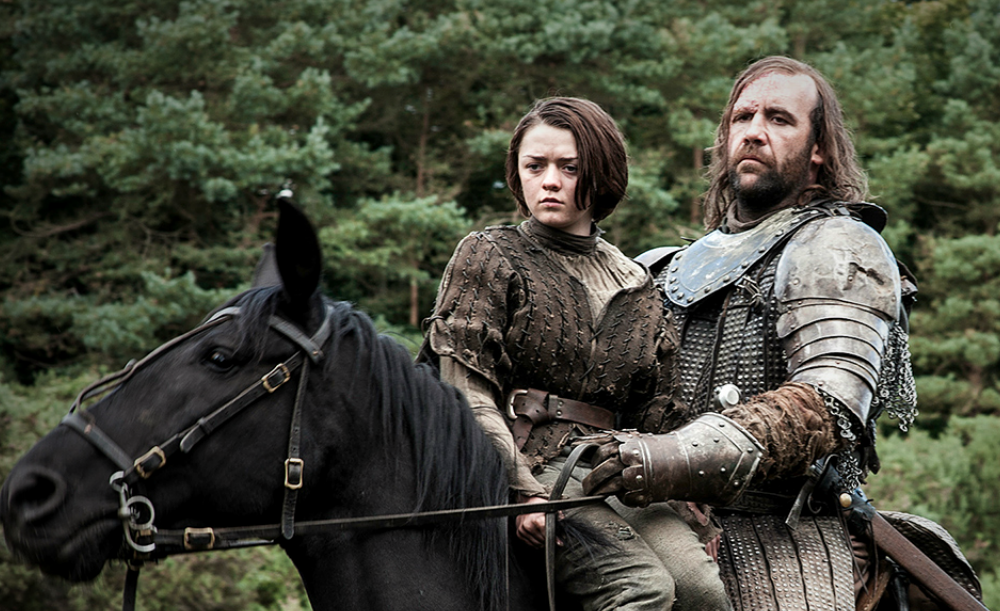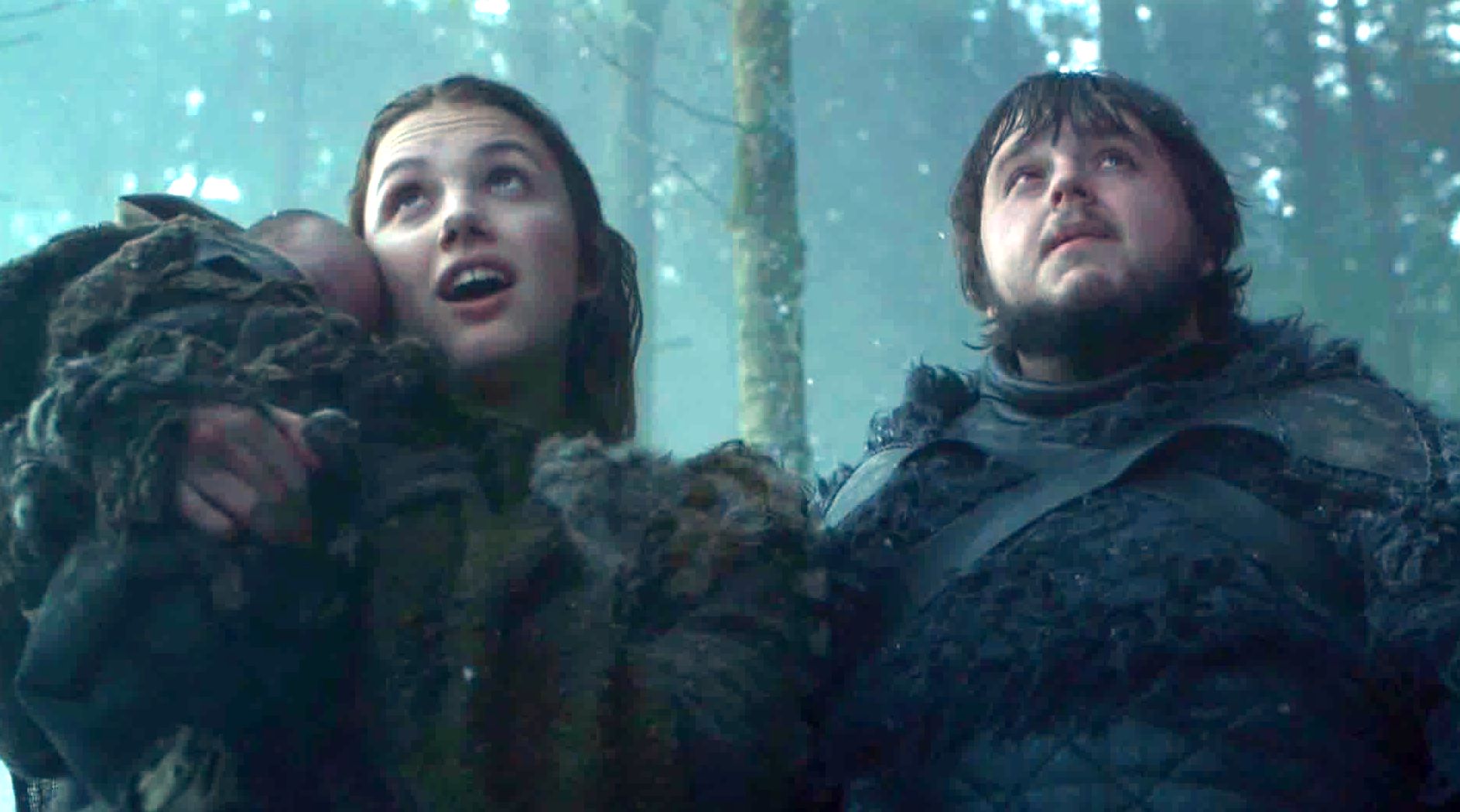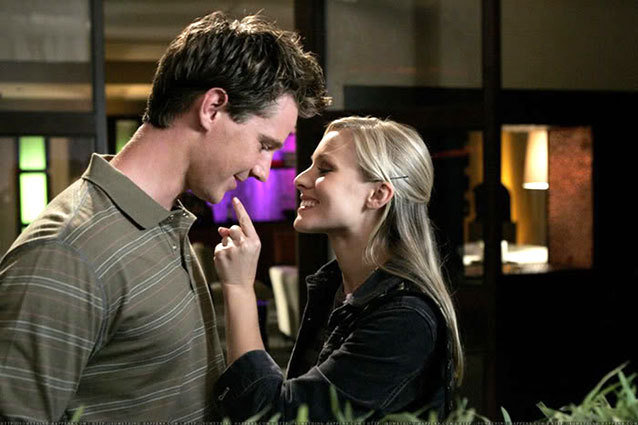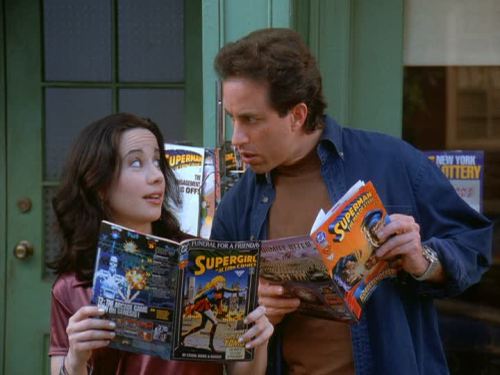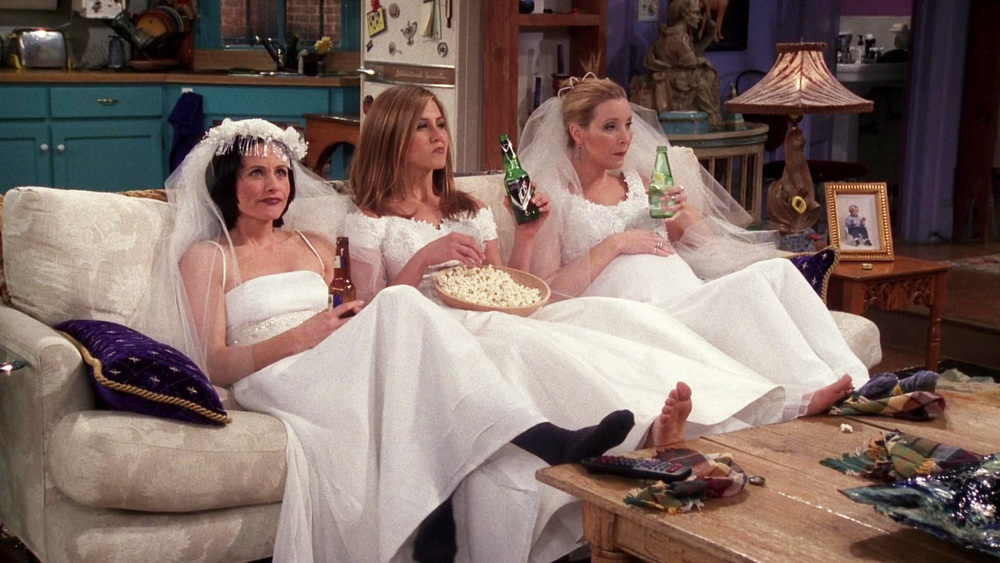I'm always up for new information about
The Mary Tyler Moore Show. Thus last year I read Jennifer Armstrong's
book about the show (excellent, if decades late) as well as Valerie Harper's
memoir. And now I see Gavin MacLeod has an autobiography out,
This Is Your Captain Speaking, so how could I resist, even if
MTM was only one relatively small part of his career.
He was born February 28, 1931 (I finished the book a while ago and decided to post this on a 28th). He grew up in Pleasantville, 30 miles and a world away from New York City. His parents were Irish Catholic and, while he generally has pleasant memories of his childhood, there was one problem--his father drank, which could lead to unpleasantness. His father also died young, when Gavin was a teen, which made things tough.
Gavin wasn't the rough and tumble kid his father wanted--he preferred to act, and seemed to have a knack for it. He even won a scholarship to Ithaca, the first of his family to go to college. Not leading-man handsome, and bald at 21, he left for Manhattan in the early 50s. There he spent several years getting the occasional job but not earning a living at his craft, and also getting married to his first wife, Rootie, a Rockette. (He also changed his name. He was born Allan See, which didn't cut it. "MacLeod" he got from an acting teacher, and "Gavin" just sounded strong.)
Then he got his break--he was cast in a small role in the hit Broadway show
A Hatful A Rain, which was in its day a tough look at drug addiction. After it closed in New York he toured with it, understudying larger roles and getting a reputation. He decided to uproot and move to Los Angeles. In Manhattan it was tough to be cast as a young bald man, but on the West Coast he found he could get roles with and without hair. One big break was hitting it off with writer-director-producer Blake Edwards, who cast him in his TV shows as well as movies like the huge 1959 hit
Operation Petticoat, where MacLeod worked with Cary Grant and Tony Curtis. (MacLeod does a lot of name-dropping, but he did work with practically everyone, and, in any case, he still seems starstruck, as if he can't believe how lucky he's been.)
But Gavin's first love was always theatre, and he appeared in a significant Hollywood production of Jack Gelber's
The Connection, a revolutionary play about, once again, drug addiction. MacLeod gave a particularly memorable performance as the creepy drug dealer Leach. Many producers and directors saw him and he became one of the busiest character actors around. He met a lot of stars before they were stars, hanging out with Steve McQueen, Robert Redford and so on. Then there was another actor trying to get a foothold, Ted Knight--Gavin and Ted met in 1957 and became close friends.
In the early 60s, with two kids and more on the way, he figured he could use a steady income, so he took a role on the sitcom
McHale's Navy. I expected him to write about how this gave him greater exposure than ever (certainly it was a breakthrough for Tim Conway, whose book I just read), but MacLeod thinks it was one of his biggest mistakes. He was, as his friends told him, little more than a glorified extra in the show's huge ensemble. He eventually left, but it took its toll. He started drinking, and his relationship with Rootie was falling apart. Things got so bad at one point he considered driving off a cliff in the Hollywood Hills. He eventually stopped drinking, and his career got back on track, but his marriage was never the same.
By the late 1960s he was a well-known quantity, regularly sought out by producers. He generally played heavies (and not just because he had a problem with ballooning weight), but was known as an actor who could make any character still somewhat sympathetic. Norman Lear had him read for the lead in
All In The Family--though MacLeod says he didn't think the script was for him. (Throughout the book MacLeod seems fairly accepting that he didn't get some roles--one door closes, another opens. It could be how he feels looking back, and not then, but it comes across as honest.) Anyway, it's just as well that Carroll O'Connor got to play Archie Bunker, because it freed MacLeod up for the role of his life in a better show, as far as I'm concerned--Murray in
The Mary Tyler Moore Show.
The producers actually wanted him for Mary's gruff boss, Lou Grant. MacLeod read for it, did well, but asked if he could also read for news writer Murray. He'd worked with Mary before (he'd actually worked with most of the cast) and felt more comfortable playing her co-worker than her boss. So they let him, even if Lou Grant was a better role. He got the part (and Ed Asner, waiting outside when MacLeod left, got Lou Grant, of course) and changed it. News writer Murray Slaughter was originally envisioned as an angrier character, but, as the writers followed MacLeod's cue, he became a nicer, more decent guy.

Murray was the least flashy of all the supporting characters--one reason MacLeod was practically alone in the cast in not winning an Emmy, not even being nominated, in fact. But he was one of the most identifiable characters. Every office has your basic brown-bagger, who may dream a lot, but mostly keeps his nose to the grindstone and never rises too high. MacLeod's basic sweetness came through, as did his appreciation for Mary Tyler Moore. Murray got his share of episodes, but mostly he was on the sidelines, making wisecracks about the stupidity of anchorman Ted Baxter (played by old pal Ted Knight, of course), or the sluttiness of Happy Homemaker Sue Anne Nivens. It's impossible to imagine the show without old Mur there, backing up Mary.
MacLeod appreciated the role. The show was both a huge hit and critically admired. And here he was in his forties, for the first time a recognizable star. And, at least in the series' later year, making pretty good money. Also, as a star, he was able to indulge in his love of theatre, appearing in plays--often musicals--when the series wasn't shooting.
But for all that, his marriage was still in trouble. Then he met another woman, Patti. Before he knew it, he divorced Rootie and married Patti.
The Mary Tyler Moore Show ended after seven seasons and MacLeod felt it was time for something different. He didn't think, however, he'd step into another hit series right away when producer Aaron Spelling called him in to read for this new show called
The Love Boat. In fact, Spelling had shot two pilots before which had failed to sell, but felt MacLeod could lend something to the show that could make it work. He was even willing to work around MacLeod's theatre schedule.
MacLeod played Captain Merrill Stubing. It's his best known role, I suppose. After all, the book is called "This Is Your Captain Speaking," not "Memo From Murray." The part was originally written to emphasize the Captain's stern authority, but once again, MacLeod turned it around a bit, to point out how caring and decent the Captain was, always watching out for his crew and passengers. Maybe that's what made the difference.
The Love Boat was a hit, running nine seasons. An hour-long format, each episode would be a cruise with three different couples having their own story, mostly comic, sometimes poignant. The critics hated the show (and it is pretty corny and mindless), but MacLeod enjoyed doing it. Here he was, approaching fifty, finally a star and even a romantic lead. He also got to meet a lot of the movie stars he'd idolized as a kid among the hundreds who came aboard over the years.
Meanwhile, his second marriage was floundering. It seemed to be sort of a mid-life crisis (his second?)--he wanted to concentrate on himself and his career, so he said goodbye to Patti. But then he had a spiritual crisis, and became a more committed Christian. After some time apart, he called Patti back and she'd also become more religious, and they had a second, born-again wedding. Indeed, while the book is mostly about his career, he often notes how central religion has become to his life, and how, looking back, he believes there was always someone watching over him.
After the series, he certainly had enough money and fame for any career. He kept busy, not only working, on and off, but also being a spokesperson for Princes Cruises--
The Love Boat had helped revive the cruise industry in general. Then, a few years ago when he turned 80 he (apparently) retired.
He's also spent time spreading the message of joy and love he's found. One role that means a lot to him is a 2008 film entitled
The Secrets Of Jonathan Sperry, about an old man who teaches some kids about the meaning of the Bible.
MacLeod was lucky. Talented, yes, but a lot of great character actors never find that perfect role that makes them famous, much less get to star in even one hit series. He did a good job as the Captain, but I can't help thinking he'll be remembered for Murray.






